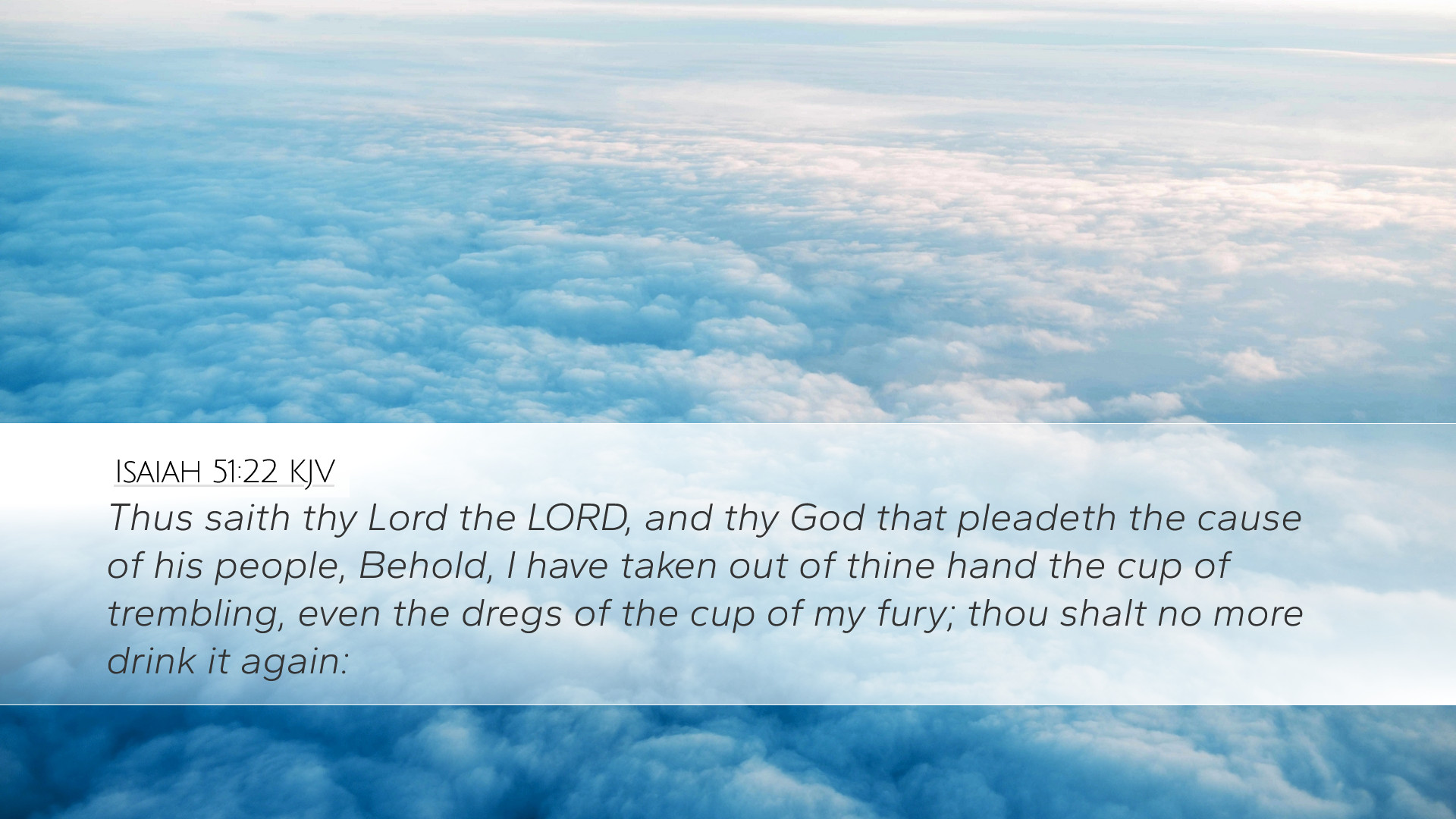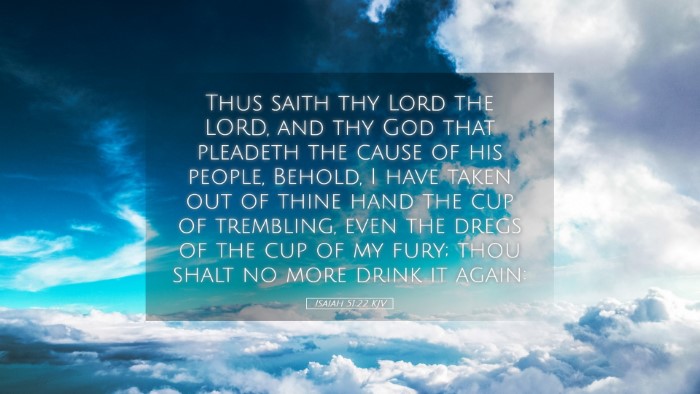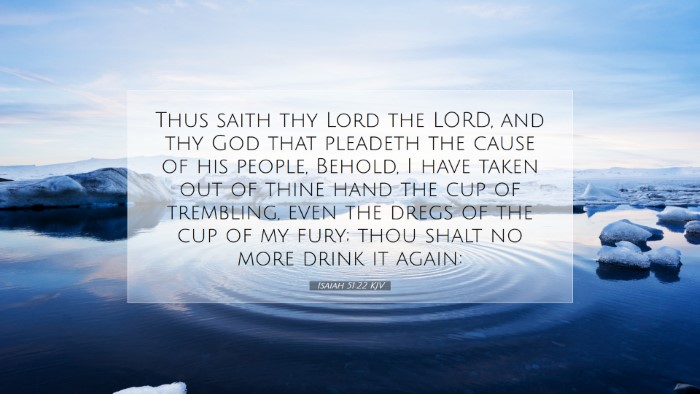Commentary on Isaiah 51:22
Isaiah 51:22 states: "Thus saith thy Lord, the Lord, and thy God that pleadeth the cause of his people, Behold, I have taken out of thy hand the cup of trembling, even the dregs of the cup of my fury; thou shalt no more drink it again." This verse serves as a powerful assurance to God's people, demonstrating His commitment to their welfare and deliverance.
Contextual Overview
This chapter falls within a broader prophetic discourse where God seeks to comfort His people. The Israelites, having experienced intense suffering and exile, find hope in God's promise of redemption.
Divine Sovereignty and Mercy
Matthew Henry notes that this verse emphasizes the sovereignty and mercy of God. He argues that the “cup of trembling” represents the trials and judgment that God's people face. Despite their affliction, God pledges to remove this cup, symbolizing His divine intervention and mercy:
- God's Pleading: The term “pleadeth the cause” underscores God's role as an advocate for His people, defending them against their adversaries.
- Relief from Judgment: The removal of the cup suggests God’s willingness to alleviate suffering, showing that He is not indifferent to their plight.
The Cup of Fury
Albert Barnes expands on the imagery of the “cup of my fury.” He explains that this cup symbolizes God's wrath and judgment due to sin. However, God's promise to take it away signifies a turning point:
- Sign of Forgiveness: The removal of the cup indicates forgiveness and a redemptive act, enabling restoration of the relationship between God and His people.
- Transformation of Suffering: Barnes highlights the transformative nature of God’s action, where past suffering is exchanged for hope and future blessings.
Theological Implications
Adam Clarke provides a theological lens through which to understand this passage. He emphasizes that this verse illustrates God's nature as one who is deeply invested in the lives of His people:
- God's Advocacy: Clarke expresses that God is portrayed as the defender of His people, actively engaged in their struggles.
- Futuristic Assurance: The promise of no longer drinking from this cup signifies that God has not only resolved the past suffering but has also laid out a future free from wrath.
Practical Applications
The insights drawn from Isaiah 51:22 offer vital lessons for contemporary believers and leaders:
- Hope in Despair: Like the Israelites, many believers face trials. This verse serves as a reminder of God’s faithfulness and our hope amidst despair.
- Encouragement in Leadership: Pastors and church leaders can use this text to encourage congregations. It emphasizes the need for advocacy, mercy, and comfort in ministry.
- Understanding God’s Nature: The verse invites a deeper exploration of God’s character. His role as defender calls believers to trust in His providence, especially during turbulent times.
Conclusion
Isaiah 51:22 encapsulates a profound message of hope and divine intervention. By drawing from the compassionate nature of God and His promise of deliverance, this verse assures believers that their sufferings are not in vain. The combined wisdom of Matthew Henry, Albert Barnes, and Adam Clarke underscores that in God’s hands, the narrative of suffering is rewritten as a testimony of grace and redemption. This passage calls every reader to embrace faith and anticipate renewed joy in the light of God’s enduring promise.


